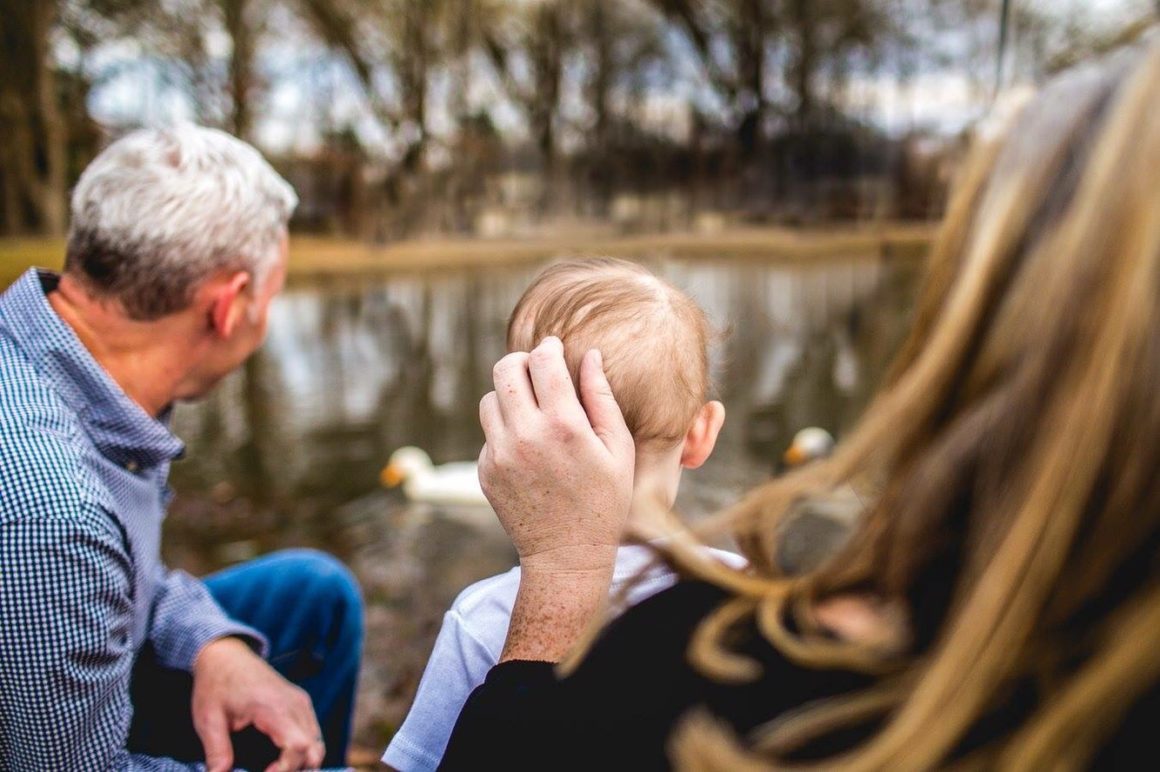I hope you are finding this series of toddlerhood blogs helpful. In previous blogs we have covered the importance of CONNECTING with your toddler, as well as a few ways to CORRECT some of their behaviors. If you are new to this series, you can find those blogs with the following links:
Five Ways To Connect With Your Toddler
Five Ways to Correct Your Toddler
Today’s topic explores five ways to PROTECT your toddler. When we think of protection, our minds understandably go to the ways our toddlers are most vulnerable. Cars, big kids, bullies, and especially predators… those are all very real threats. Though these issues are all worthy of our attention, that is not what this blog is about. My intent is to focus on the more subtle ways we protect our little ones with our day-to-day interactions; the ways we teach them about who they are and, in turn, protect them from picking up the wrong ideas about themselves and how we feel about them. Here are five ways we can do it.
1. PROTECT THEIR HONOR. Very often our toddlers will do things that drive us crazy. When they do these things, we understandably have the need for moral support from other parents. I mean, who knew a button from the remote control can actually come off and get stuck up your nose? Know that we all need to reach out for support, but that how we go about it is important.
I have seen (and laughed at) the “dog shaming” pictures that people post online. I’m sure you’ve seen them, catching the dog in the middle of some misbehavior and documenting it with a bit of snark. They can be funny, and the humor can take the edge off of a frustrating situation. While it is one thing to make a funny dog meme, we need to be careful to portray our children differently.
If our little ones are having a tantrum, they probably need our calming presence to help them in their moment of need. Remember to be mindful of this. Instead of taking pictures, spend your energy letting them know that you are there, and that they are okay. Be present with them and bring your calm to their storm. Once the incident is over, call a friend in private to dish about the whole thing. Don’t vent your frustration in front of them, and strive to protect their honor in public.
2. PROTECT THEIR INPUT. This relates to guiding principle #2 from our last blog: What behaviors they see us doing is what they will do. It is good to be aware of what we are modeling for them. How do they see us interact with other people? What do they hear us saying about their siblings? About our spouses? Even about ourselves? The attitudes we want them to adopt about themselves and others will likely be shaped most by what we show them.
Mother Teresa has been quoted as saying, “If you want to bring happiness to the whole world, go home and love your family.” That is a much more eloquent way of saying that our children’s input at this stage will likely become their beliefs and actions in the next. Be mindful of the ways you are shaping them by your example.
3. PROTECT THEIR CAREGIVERS. If we are going to take Mother Teresa’s quote seriously, we are going to need some self-care. No one can be the loving, calm, serene, non-shaming, secure attachment figure our toddlers deserve without first caring for ourselves.
If you’ve flown on a plane you have probably seen the pre-flight instructions about what to do if there’s an emergency. One of the instructions is to put YOUR oxygen mask on first, then tend to the children. Why? Because you can’t do them much good if you’ve passed out.
Think about what it means to care for yourself. Do you need some social time with adult friends? A hot bath? Time out from a tantrum? A hobby? Alone time? Date night with your spouse? Even therapy for your triggers? Parenthood isn’t easy, and nobody expects you to do it without the fuel to fill your tank.
4. PROTECT THEIR CHANCE TO EXPLORE. Our toddlers are into absolutely everything. That’s why we put locks on our cabinets and plugs in our outlets, for goodness sake. Their safety is paramount, and we obviously have to protect them from what they don’t know can hurt them. In all of our protecting, however, let’s not unintentionally strip them of their opportunities to explore and discover.
My son absolutely loved our Christmas tree this year. I must say, it was a beautiful tree. The ornaments were gorgeous, and my wife had it lit up brighter than the burning bush. Because that tree was so beautiful, my little man understandably wanted to hold all the ornaments. Especially the pretty glass ones. Everyday. Each time he saw it.
Now, here’s the thing–we could have put a barrier around the tree like I wanted to do. You know, just prevent him from getting to it. The tree stays pretty… the kid stays safe… it was the perfect plan! But in my zeal for having a pretty tree, I was ignoring the fact that this was the first Christmas he could somewhat enjoy the decorations. He had never seen such a thing! How interesting it must have been. Luckily my wife realized this and nixed the barrier. She took the time to stay there with him and allow him to touch the ornaments. She taught him about how fragile they are, and how carefully he must hold them. She coached him on what was safe and what was not. She even let him hang a few.
Toddlers need opportunities to learn. They need to find some things out for themselves. They need to explore and even make a few mistakes. If we take away those opportunities, we rob them of some of the best learning they can have at this age. So lets give them the limits they need to protect them, but preserve their opportunity to figure some things out on their own. They are designed to be soaking in knowledge at this age, so let’s protect them without unintentionally getting in their way.
5. PROTECT THEIR HEARTS. Our toddlers thrive when we respond graciously to their emotions. We are their first social relationships, and as such we serve as the way they develop their sense of belonging in the world. Though they are small, they are wrestling with some big questions. Am I important? Am I loved? Do I matter? We can give them this assurance in how we respond to them day-to-day. If we show them that their feelings are important we can give them the security they need to thrive.
Remember that their toddler feelings won’t always make sense to an adult. For example, waking up alone is scary. Riding in the carseat is lonely. Church sandals are uncomfortable. These kinds of things may not seem like big deals to us, but they are monumental for our little ones. When we can compromise, let’s do it. When we can’t, let’s take the time to listen to their concerns and show them that we understand. Reflect their feelings back to them and verbalize what you think they are trying to communicate. Let them know those things are important to you, even if you can’t change them. Comfort them even when their problem seems small. After all, if we pay attention to their “small” problems in toddlerhood, maybe they will come to us with their “big” problems in the future.
By Matt Thames, M.A., LPC
Click here for PART FOUR: Five Ways To Prepare Your Toddler


